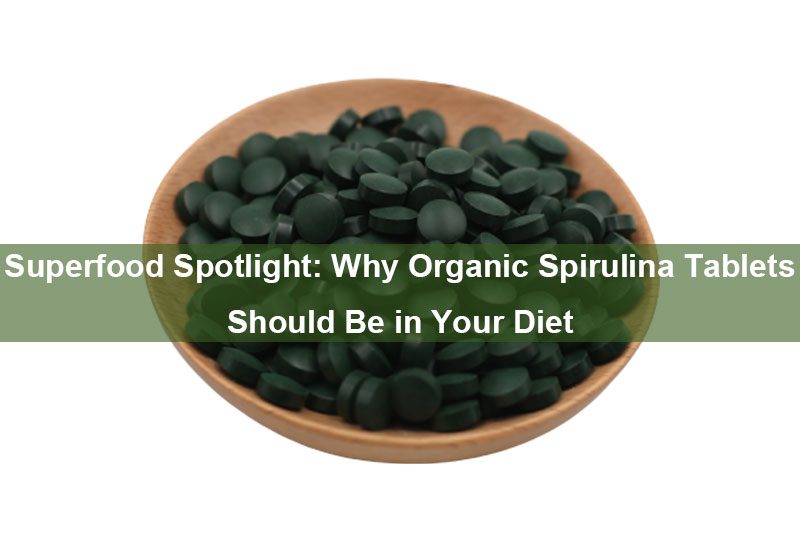Table of Contents
What is organic glucomannan?
Organic glucomannan is a type of dietary fiber that comes from the root of the konjac plant, which grows in Asia. Glucomannan is a soluble and fermentable fiber, which means it dissolves in water and forms a gel-like substance that can slow down digestion and feed the good bacteria in your gut.
Organic glucomannan is different from regular glucomannan because it is processed and extracted from konjac flour using organic methods. This ensures that the product is free of pesticides, chemicals, and additives that may harm your health or the environment.
What are the benefits of organic glucomannan?
Organic glucomannan has many health benefits that make it a valuable addition to your diet. Some of these benefits include:
- Weight loss: Organic glucomannan can help you lose weight by making you feel full longer, reducing your appetite, and lowering your calorie intake. It can also prevent fat absorption and increase fat burning in your body. Several studies have shown that supplementing with glucomannan can reduce body weight but not body mass index (BMI) in the short term in otherwise healthy adults with overweight or obesity.
- Gut health: Organic glucomannan can improve your gut health by acting as a prebiotic that feeds the beneficial bacteria in your colon. This can enhance your digestion, immunity, and mood. It can also prevent or relieve constipation, diarrhea, and irritable bowel syndrome by increasing stool bulk and frequency.
- Cholesterol and blood sugar: Organic glucomannan can lower your cholesterol and blood sugar levels by reducing the absorption of these substances in your intestines. This can lower your risk of heart disease, diabetes, and metabolic syndrome. A systematic review of 14 studies found that glucomannan can lower total cholesterol by 19 mg/dL (0.5 mmol/L), “bad” LDL cholesterol by 16 mg/dL (0.4 mmol/L), triglycerides by 11 mg/dL (0.12 mmol/L), and fasting blood sugar by 7.4 mg/dL (0.4 mmol/L).
What are the side effects of organic glucomannan?
Organic glucomannan is generally considered safe when taken as directed, but it may cause some side effects, especially if taken in large doses or without enough water. Some of these side effects include:
- Gastrointestinal issues: Organic glucomannan may cause increased gas, diarrhea, bloating, stomach pain, nausea, vomiting, or indigestion in some people. These effects are usually mild and temporary, but they may be more severe or persistent in people with sensitive stomachs or digestive disorders.
- Choking hazard: Organic glucomannan may swell up in the throat or esophagus if not swallowed properly with enough water. This may cause choking, difficulty breathing, or blockage of the airway. This is a rare but serious complication that requires immediate medical attention.
- Drug interactions: Organic glucomannan may interfere with the absorption or effectiveness of some medications, such as oral diabetes drugs, blood thinners, or antibiotics. It may also affect the levels of some vitamins or minerals in the body. Therefore, it is advisable to consult with your doctor before taking organic glucomannan if you are on any medication or have any medical condition.
How does organic glucomannan compare with other products?
Organic glucomannan is not the only product that claims to offer similar benefits as a dietary fiber supplement. There are other products that contain different types of fibers or ingredients that may have similar effects on weight loss, gut health, cholesterol, and blood sugar. Here are some examples of such products and how they compare with organic glucomannan:
- Psyllium husk: Psyllium husk is another type of soluble fiber that comes from the seeds of a plant called Plantago ovata. It has similar properties as organic glucomannan in terms of forming a gel in the stomach and intestines, slowing down digestion, increasing satiety, lowering cholesterol and blood sugar levels, and improving bowel movements. However, psyllium husk may not be as effective as organic glucomannan in reducing appetite and calorie intake, and it may also cause more gas and bloating than organic glucomannan.
- Guar gum: Guar gum is a type of soluble fiber that comes from the seeds of a plant called Cyamopsis tetragonoloba. It is often used as a thickener or stabilizer in food products. Like organic glucomannan, guar gum can also form a gel in the stomach and intestines, slow down digestion, increase satiety, lower cholesterol and blood sugar levels, and improve bowel movements. However, guar gum may have more side effects than organic glucomannan, such as abdominal cramps, diarrhea, flatulence, or obstruction of the esophagus or intestines. Guar gum may also interact with some medications more than organic glucomannan.
- Organic inulin: Inulin is a type of soluble fiber that comes from various plants, such as chicory root, Jerusalem artichoke, or agave. It is often used as a prebiotic or a sweetener in food products. Inulin can also increase satiety, lower cholesterol, and blood sugar levels, and improve gut health by stimulating the growth of beneficial bacteria in the colon. However, inulin may not have any effect on body weight or appetite, and it may cause more gastrointestinal issues than organic glucomannan, such as gas, bloating, diarrhea, or allergic reactions.
Conclusion
Organic glucomannan is a healthy and versatile fiber that can help you with weight loss, gut health, cholesterol, and blood sugar management. It is derived from the konjac plant using organic methods that ensure its purity and safety. However, organic glucomannan may also have some drawbacks, such as causing gastrointestinal issues, posing a choking hazard, or interacting with some medications.

